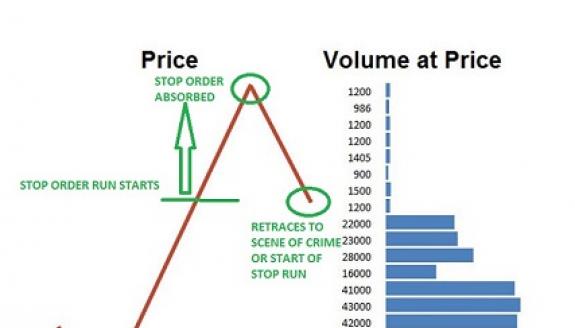
There are pros to both investing in stocks and real estate. For great returns, it is important to maintain a balance between time, involvement, risk and reward. The better you are able to understand the world, the more prepared you'll be.
You can earn capital appreciation, which is one reason to invest in realty. Rental income is another benefit of real estate. Renter income is often exempt from tax, which can help investors make more money.
Another benefit of investing in realty is the possibility to receive leveraged returns. A mortgage can be used to finance leveraged returns, which is when an investor makes a purchase in real estate. This can allow an investor to purchase a larger property without having to put down a large sum of money.

Stocks have their benefits too. Investors can also invest in stocks for pennies while still earning good returns. There are risks associated with investing in stocks, such as the possibility of being subject to capital gains tax when you sell the stock. Investors should be familiar with the financials of the company as well future earnings projections prior to buying and selling stock.
Another advantage to investing in real property is the stability of the housing market. Real estate is an excellent investment choice because it tends to grow in value over time. However, the market can also decline in value at any time. You may not be able to sell your investment if its value drops.
If you are interested in investing in real property, you have the choice of purchasing a single property (or a portfolio). Real estate investment trusts can also be created to own income-producing properties. They can automatically send your account dividends.
Stocks are not tangible assets, but real estate is. Stocks are a less tangible asset than real estate, making it a more expensive investment. This is due to closing costs, transaction fees, and attorney fees. A down payment is usually 20% to invest in real property. Also, closing costs, appraisal fees, agent fees will all be required.

It is a large investment to buy a house. Many homebuyers put up tens of thousands of dollars. It can also take several weeks or months to sell. Real estate isn't a liquid investment like stocks. It can also take several months or even years to sell.
Buying and selling stocks is generally a quicker process. Stock market allows you to buy and sell shares at any time you wish. The sale proceeds can take several days or even weeks. Many investors are subject to capital gains taxes when they sell their stock. The amount of capital invested and its growth will affect the tax rate.
Real estate investment requires more effort and hand-on work. You will need a property manager to manage your properties and you'll have to meet with the company on a regular basis. You will also have to manage repairs and gas leaks. There is even the possibility of being sued.
FAQ
What is the difference between stock market and securities market?
The entire list of companies listed on a stock exchange to trade shares is known as the securities market. This includes stocks as well options, futures and other financial instruments. Stock markets are usually divided into two categories: primary and secondary. Stock markets that are primary include large exchanges like the NYSE and NASDAQ. Secondary stock exchanges are smaller ones where investors can trade privately. These include OTC Bulletin Board Over-the-Counter (Pink Sheets) and Nasdaq ShortCap Market.
Stock markets are important because they provide a place where people can buy and sell shares of businesses. The price at which shares are traded determines their value. New shares are issued to the public when a company goes public. Dividends are paid to investors who buy these shares. Dividends are payments made by a corporation to shareholders.
Stock markets are not only a place to buy and sell, but also serve as a tool of corporate governance. Shareholders elect boards of directors that oversee management. They ensure managers adhere to ethical business practices. The government can replace a board that fails to fulfill this role if it is not performing.
How Does Inflation Affect the Stock Market?
Inflation is a factor that affects the stock market. Investors need to pay less annually for goods and services. As prices rise, stocks fall. You should buy shares whenever they are cheap.
Can bonds be traded?
Yes, they do! As shares, bonds can also be traded on exchanges. They have been traded on exchanges for many years.
The difference between them is the fact that you cannot buy a bonds directly from the issuer. You will need to go through a broker to purchase them.
This makes buying bonds easier because there are fewer intermediaries involved. You will need to find someone to purchase your bond if you wish to sell it.
There are different types of bonds available. While some bonds pay interest at regular intervals, others do not.
Some pay interest annually, while others pay quarterly. These differences make it easy for bonds to be compared.
Bonds can be very useful for investing your money. For example, if you invest PS10,000 in a savings account, you would earn 0.75% interest per year. If you invested this same amount in a 10-year government bond, you would receive 12.5% interest per year.
You could get a higher return if you invested all these investments in a portfolio.
Why is a stock security?
Security refers to an investment instrument whose price is dependent on another company. It can be issued by a corporation (e.g. shares), government (e.g. bonds), or another entity (e.g. preferred stocks). If the underlying asset loses its value, the issuer may promise to pay dividends to shareholders or repay creditors' debt obligations.
Statistics
- The S&P 500 has grown about 10.5% per year since its establishment in the 1920s. (investopedia.com)
- Ratchet down that 10% if you don't yet have a healthy emergency fund and 10% to 15% of your income funneled into a retirement savings account. (nerdwallet.com)
- For instance, an individual or entity that owns 100,000 shares of a company with one million outstanding shares would have a 10% ownership stake. (investopedia.com)
- Individuals with very limited financial experience are either terrified by horror stories of average investors losing 50% of their portfolio value or are beguiled by "hot tips" that bear the promise of huge rewards but seldom pay off. (investopedia.com)
External Links
How To
How to open a trading account
The first step is to open a brokerage account. There are many brokers available, each offering different services. Some brokers charge fees while some do not. Etrade, TD Ameritrade and Schwab are the most popular brokerages. Scottrade, Interactive Brokers, and Fidelity are also very popular.
Once your account has been opened, you will need to choose which type of account to open. Choose one of the following options:
-
Individual Retirement accounts (IRAs)
-
Roth Individual Retirement Accounts
-
401(k)s
-
403(b)s
-
SIMPLE IRAs
-
SEP IRAs
-
SIMPLE SIMPLE401(k)s
Each option comes with its own set of benefits. IRA accounts offer tax advantages, but they require more paperwork than the other options. Roth IRAs allow investors to deduct contributions from their taxable income but cannot be used as a source of funds for withdrawals. SIMPLE IRAs can be funded with employer matching funds. SEP IRAs work in the same way as SIMPLE IRAs. SIMPLE IRAs have a simple setup and are easy to maintain. These IRAs allow employees to make pre-tax contributions and employers can match them.
You must decide how much you are willing to invest. This is called your initial deposit. Most brokers will give you a range of deposits based on your desired return. Based on your desired return, you could receive between $5,000 and $10,000. The lower end of the range represents a prudent approach, while those at the top represent a more risky approach.
After choosing the type of account that you would like, decide how much money. There are minimum investment amounts for each broker. These minimums can differ between brokers so it is important to confirm with each one.
After choosing the type account that suits your needs and the amount you are willing to invest, you can choose a broker. Before selecting a broker to represent you, it is important that you consider the following factors:
-
Fees: Make sure your fees are clear and fair. Many brokers will offer trades for free or rebates in order to hide their fees. However, some brokers raise their fees after you place your first order. Don't fall for brokers that try to make you pay more fees.
-
Customer service: Look out for customer service representatives with knowledge about the product and who can answer questions quickly.
-
Security - Make sure you choose a broker that offers security features such multi-signature technology, two-factor authentication, and other.
-
Mobile apps - Check if the broker offers mobile apps that let you access your portfolio anywhere via your smartphone.
-
Social media presence - Check to see if they have a active social media account. It might be time for them to leave if they don't.
-
Technology – Does the broker use cutting edge technology? Is the trading platform user-friendly? Are there any problems with the trading platform?
After you have chosen a broker, sign up for an account. Some brokers offer free trials, while others charge a small fee to get started. Once you sign up, confirm your email address, telephone number, and password. Then, you'll be asked to provide personal information such as your name, date of birth, and social security number. The last step is to provide proof of identification in order to confirm your identity.
After you have been verified, you will start receiving emails from your brokerage firm. You should carefully read the emails as they contain important information regarding your account. You'll find information about which assets you can purchase and sell, as well as the types of transactions and fees. You should also keep track of any special promotions sent out by your broker. These could include referral bonuses, contests, or even free trades!
Next, you will need to open an account online. An online account can be opened through TradeStation or Interactive Brokers. Both of these websites are great for beginners. When you open an account, you will usually need to provide your full address, telephone number, email address, as well as other information. Once this information is submitted, you'll receive an activation code. This code will allow you to log in to your account and complete the process.
Now that you've opened an account, you can start investing!